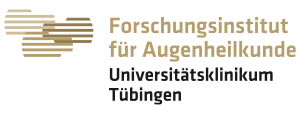Dr. Susanne Kohl and Pietro De Angeli were awarded one of the three grants issued by the Usher Syndrome Society intended to support translational research on Usher syndrome in either Preclinical Research and/or Mechanismbased Therapeutic Development. EDCas9 is a recently established, bioengineered molecular Cas9 variant that has been proven highly effective in targeting deep intronic variants known to result in disease by generating aberrant transcripts during splicing of the mRNA. Funding was granted for a first year of research with the option to apply for a second year. Within this 2-year project, EDCas9 will be implemented to rescue the splicing defects due to the deep-intronic variant c.7595-2144A>G in USH2A. Artificial cellular models will be used for preliminary screening of the most effective designs and conditions, whereas patient-derived cellular models harboring the mutation in a homozygous or heterozygous state will be used for final assessment of the translational approach. This study will serve as a proof of concept to demonstrate that permanent correction of such genetic defects is scalable and possible, and provide hope for the translation into the clinic as a therapy for this debilitating disease.
More information:




